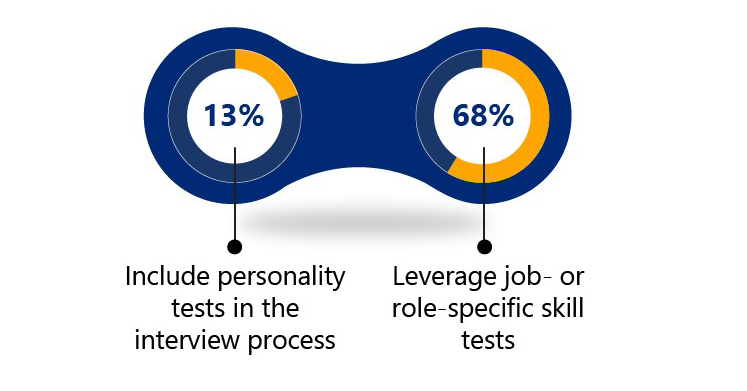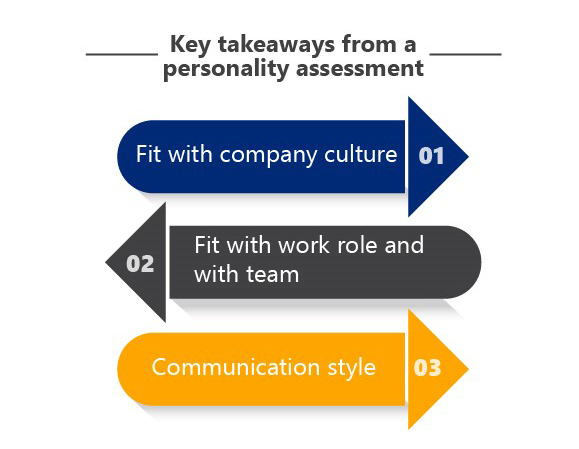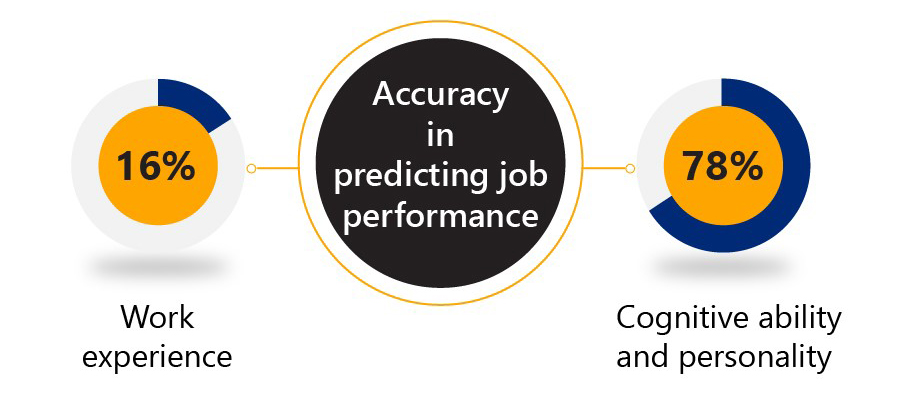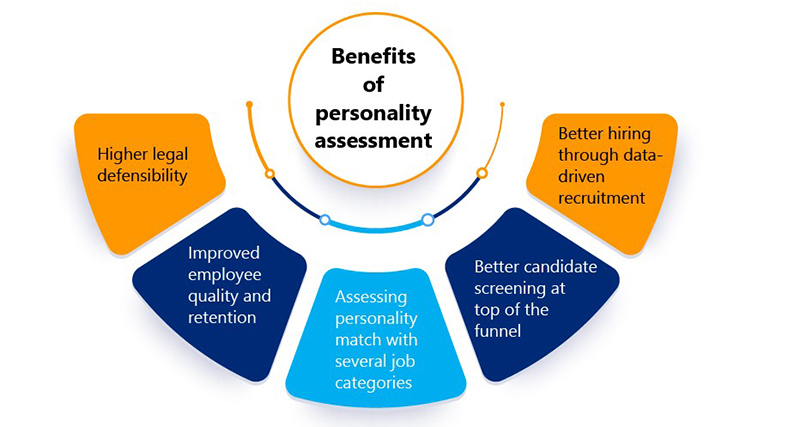
The war for talent is raging, and a clear implication of it is the need to hire better – just cast a glance at the high rates of employee turnover and costs of bad hiring:

Clearly, there is very little room for error when it comes to hiring!
True, but a polished CV does not always tell all. Education and experience levels do not give the complete picture, and there is more to a candidate than where he/she has studied and worked. The right hiring requires predicting the chances of future success.
Testing is often touted as a means to better achieve this very objective. Often, though, candidates sail through interview processes with the job offer in sight – so to speak – but are tripped up as soon as a test comes into the picture.
Testing still is a fair, valid method of vetting candidates in detail before bringing them on board. Tests specific to a role are part of many interviews, but the new entrant – personality assessment – gives targeted insights into the behavior, personality, and skills of the candidate.
Rooted in the early part of as far back as the 20th century, personality assessment was then used to gauge intelligence. It represented the fruition of the need to use statistics to quantify and simplify complex ideas, and IQ tests were developed as a result. Come World War I, and personality assessment picked up steam as a means of identifying soldiers with leadership qualities or those prone to having nervous breakdowns when under siege.
Organizations clearly needed a method of evidence-based talent acquisition, and personality assessment meets that need. It is an innovative means of screening, assessing, and selecting a candidate so that the organization can hire the right candidate for the job at hand.
Personality is a scientifically-proven means of predicting on-the-job performance and assessing how the candidates will behave in the work environment. The use of personality tests in hiring helps recruiters to judge the likelihood of the candidates becoming top performers and good fits for the company culture.
Besting traditional methods of gathering information, personality assessments offer objective insights that make for better candidate selection. They help judge the likely effect of candidate personality on behavior at work, their interactions with others, their approach to solving a problem, and their emotional state.
Employers agree! According to the Society for Industrial and Organizational Psychology, among US employers,

The median duration for which an employee stays with a company stands at a not-too-long 4.2 years. It thereby behoves the company to know whether or not the candidate is a good fit and will stay around for a reasonable duration. Refilling that position is clearly a costly proposition and thereby not in the best interests of the company.

Here are the top reasons to use personality assessment for hiring:
As a method, personality assessment is quite accurate! Sample the accuracy of the following parameters in predicting job performance:

Clearly, for a recruiter, personality assessment is a valuable add-on to find the best possible candidate. Here is why:

Personality assessment for hiring clearly is a good idea, yet there are some factors to watch out for. The assessments can take time, and prospective hires may not want to wait that long. They bump up the cost of hiring, and are not 100 percent accurate in their intended purpose. And given the human tendency to answer what is desired, they may not be all that reliable.
Given the numerous types of personality assessments available, all of which tout their effectiveness in making hiring better, the choice becomes critical. Here are the parameters to consider:

In the past century, personality tests have grown to a market value of USD 2 billion just in the US! Given the need to innovatively find the candidate most suited to a particular job, the use of personality tests in hiring is a valuable option given its scientific, data-driven base and how they help to judge the fit both with the job and the culture. They are a great way to boost communication, productivity, and teamwork, ultimately growing business happiness and profitability!

CredBadge™ is a proprietary, secure, digital badging platform that provides for seamless authentication and verification of credentials across digital media worldwide.
CredBadge™ powered credentials ensure that professionals can showcase and verify their qualifications and credentials across all digital platforms, and at any time, across the planet.

Please enter the License Number/Unique Credential Code of the certificant. Results will be displayed if the person holds an active credential from TMI.